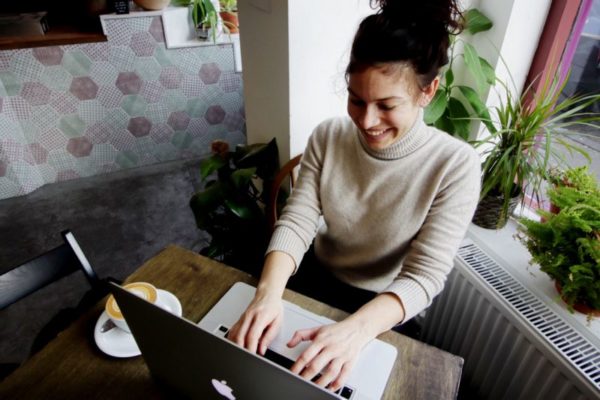How to Break Your Addiction to Busy
Mental Health, Presence, Reducing Stress

These days, when you run into a friend on the street and ask them how they are, the answer is rarely “good.” The answer is more often “busy.” We live in a society addicted to busyness. Some of it may be real, but a lot of it is self-created. With so much external stimulus, we have become prone to creating hectic lifestyles to avoid any kind of real thought or contemplation. We have a fear of what “non-busy” even looks like. What? To be left with our own thoughts? This has become many people’s worst nightmare. Unfortunately, however, our addiction to busyness has come at a huge cost – our health. We have to break your addiction to busy!
The most obvious and significant consequence of our constant busyness is stress. Stress not only has serious implications for our mental health but also can dangerously affect our physical health, upsetting our immune system, digestive system and cardiovascular system. But perhaps just as bad as the consequence of stress is the regret of a life less lived. I work day everyday with “busy” professionals, and I see first-hand how many of us have become so busy making a living, that they have forgotten to make a life. The ability to set priorities, set boundaries and say “no” is crucial to overcoming our addiction to busy, improving our health and creating a life that we are truly proud of. Here are some of the ways I help my clients achieve these things:
Know Your Values
Values are a grossly underestimated tool in decision making and prioritization. Often when we make life decisions, we write out long lists of pros and cons. When we prioritize, we consider factors such as urgency and importance. But how often do we take a step back and ask ourselves how these life decisions and priorities actually align with who we are and what is important to us?
From my experience with coaching individuals, these questions rarely come up. However, this disconnect between how we live and what we value is one of the deepest sources of anxiety and inner turmoil. Once we take the time and invest the energy into really defining our core values, and then sorting them in order of importance, we unlock a huge opportunity for greater clarity, confidence and significantly reduced anxiety.
For example, if “family” is your top value, and a weekend work call conflicts with your daughter’s graduation, the decision becomes far easier. There is no longer anxiety about which to accept and which to turn down because it is clear which of these engagements better aligns to your core values. When we live in alliance with our values, it is amazing how much lighter we feel. When we live in alliance with our values, it’s so much easier to break the addiction to busy.
So next time you need to make an important decision, try ditching the pros and cons list and instead draw a hierarchy of your core values. Explore them, define them and then use them as your compass.


Embrace the Space Between Stimulus and Response
Another implication of our crazy busy world is that we are scared of silence: verbal and mental. We are scared to stop or to pause. We are scared to take a moment where we actually just reflect, because if we are not speaking or doing then we no longer appear “busy.” As a result, we strive to fill every second. In doing so, we eliminate an extremely valuable gap between what happens to us and how we respond. What if we were able to use that gap?
When we effectively use the space between stimulus and response, we take back the wheel as driver – we no longer let the tides and currents direct our life, but we own the decisions that we make (and don’t make). Next time you are in a situation – perhaps you are asked to do take on another project or to join a friend for work drinks. Before you immediately say “yes,” try pausing. Try using the gap between stimulus and response to ask yourself if it is really want you want or can realistically take on. If it is not, simply say “no.” And don’t say “no” timidly. You are in front of the wheel… own your direction! Which brings me to my next point:

Own It
Many of us are scared of saying no. Perhaps we feel like we are letting people down. Perhaps we feel like we are inadequate if we can’t do it. However, the truth is the most admirable and respectable leaders of all time are the ones that are able to say “no,” the ones that know their limits and their boundaries. It is a sign of strength not weakness to be able to say no. It is also a sign of self respect.
And, in the long run, you will let more people down by saying yes to everyone than you will by carefully choosing your commitments. Why? Because when we always say yes, we do a little bit of everything and a lot of nothing. This not only affects our mental health – we feel stressed, guilty, overwhelmed – but it also affects other people who do not get your full attention or presence.
When we commit to fewer things, we are able to truly invest in them – mentally and physically – and from this, everybody wins. Seneca once said that, “No one pursuit can be successfully followed by a man who is preoccupied by many things.” We must remember that learning to say “no” to less important commitments opens our life to pursue more important things. So set your prioritizes, set your boundaries and when you decide to say no – break the addiction to busy and own it! Remember that you are not disrespecting other people’s needs, but instead, you are respecting your own.


Prioritize Prioritization
Prioritization pops up in almost every personal and professional development article we see. And for good reason – it’s important! We all know it’s important, and we all know we need to do it, but how often do we sit down and actually order our priorities? The key is not just to prioritize, but to prioritize prioritization. Make sure that setting your priorities is at the top of your to-do list every single morning.
What are you working on? Is it urgent? What’s most important? What could be a distraction? How can you delegate?
Prioritizing prioritization will help you get really clear on what needs to be done and, just as importantly, what doesn’t! This helps break the addiction of busy and also helps free up time for you – to spend time on the things that are important to you and the things that feed your soul.

Schedule Time to Rest
The flip side of valuing being “busy” is placing little value on the need for rest. But rest is what helps us to recharge, to be productive, efficient and fully present. It refuels our bodies, our minds and our souls. When I work with busy addicts, I encourage them to intentionally schedule time for rest in their calendar. We all know that if it’s not scheduled, it won’t happen – at least until we learn to appreciate and practice a less busy lifestyle. So to start with, schedule it in. Chances are once you begin to see and feel how beneficial it is, you won’t even need to schedule it; you will just integrate it into your every day.
So what does “rest” mean? It doesn’t need to mean taking a nap in a comfy bed. Rest can mean going for a walk, reading a book, meditating or sitting in the sun – anything that helps you shut out your busy schedule and invest in some “you” time. It is amazing what this will do for your physical and mental health, and I think you will even find that being “busy” is really not a badge of honor.

Shift Your Mindset
Remember that being busy is a choice. We are not forced to lead hectic lifestyles; we create them. When we realize this, we take back the power and break our addiction to busy. We realize that our schedules are determined by us, and that we can choose to slow the pace. However, before we choose to do this, we need to actually want it. And in order to actually want it, we need to stop glorifying being busy.
For as long as being “busy” is a goal, we will keep working toward it. An alcoholic will not stop drinking unless he or she desires sobriety. OR unless they reach a point where their health demands it (which busyness can lead to as well!). So I encourage people to take a moment to reflect on what being constantly “busy” actually achieves and what life would look like at a slower, more intentional pace. Could you spend more time with the people you love? Would you have more energy for your passions? Would you allow the room for greater creativity? Could you appreciate the little things that you are currently speeding past?
I challenge you to spend one full week allowing yourself to be less busy. Schedule less, say “no” more and allow plenty of time for rest. At the end of the week, ask yourself how that felt. Were you able to achieve just as much? How did the quality of your work and relationships change? How are you feeling mentally and physically? Perhaps once we feel the benefits of slowing down, we will stop putting “busyness” on a pedestal and start realizing that being “busy” is simply a drug with which we need to break our addiction.
As Socrates once said “beware of the bareness of a busy life.”



